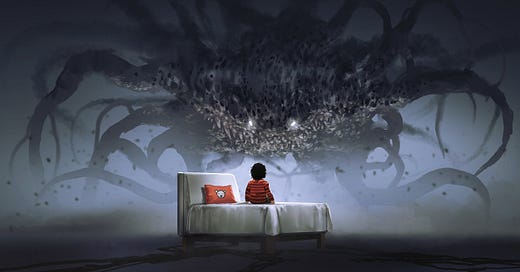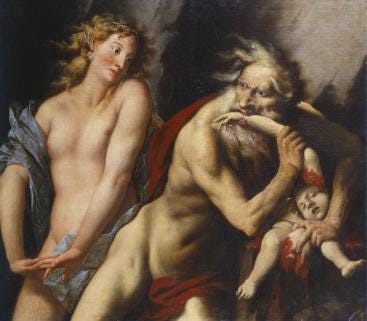Western society presents a narrative of individuality and self-sufficiency as core values, but in practice, many people are stuck in the symbiotic phase. So while this modern narrative may seem empowering on the surface, it often leads to repression of deeper emotional needs and a disconnection from the inner child and vulnerabilities, which are key to healthy emotional development. The societal emphasis on self-reliance leads people to suppress their emotional needs, including the need for nurturing, support, and vulnerability. This can result in people feeling emotionally isolated and unable to express their true feelings, as they believe that showing vulnerability or seeking help makes them weak or dependent. Many Western cultural norms emphasize tough love, which is often a form of emotional detachment framed as a positive trait. This practice can further harm the inner child, as it often ignores the need for gentle nurturing and emotional expression, leading to a deeper sense of emotional neglect.
People buy into this illusion because society pushes them to appear emotionally self-sufficient. The narrative aligns with the cultural ideal of the self-made person who doesn’t need anyone and can function perfectly fine on their own. This idea has been internalized and perpetuated by media, family, and societal institutions. In reality, the majority of people are stuck in the unconscious symbiotic stage, where there is a lack of differentiation between self and other. These individuals are not fully aware of their emotional needs or how to express them in a healthy way. They project their unmet needs onto others and depend on external validation to feel good about themselves.
The Illusion of “Independence”
So while society encourages the illusion of individuality, many people are sadly often unconsciously projecting their emotional needs onto others because they are unable to acknowledge or nurture those needs within themselves. They have not moved beyond this early developmental phase, which is marked by a lack of differentiation and an unconscious fusion with others. Which actually keeps them from being able to nurture the childhood wounds, and thus from being able to progress emotionally. People who are stuck in the symbiotic stage will continually seek external validation because they have not learned to cultivate their own emotional self-sufficiency. They will unconsciously project their unmet emotional needs onto others, hoping that others will meet those needs in ways that they themselves have not learned to process or nurture. This reliance on superficial external validation leads to repression of the inner child. So the emotional self that craves care, attention, and support. As the inner child’s needs go unmet, it creates internal conflict, where the individual may feel a deep sense of emptiness, even though they present themselves as self-sufficient or emotionally independent on the surface.
It promotes the idea of the independent self, where success is defined by external accomplishments, autonomy, and the ability to stand alone. This ego-driven persona becomes the primary identity people identify with, overshadowing their deeper emotional experiences. This ego-identification creates an illusion of separation and independence, preventing people from recognizing their interconnectedness with others and their own emotional needs. They may internalize this persona as who they "should" be, instead of recognizing it as a constructed image meant to protect them from facing vulnerability.
Creating the idea that this form of autonomy and self-sufficiency will thus lead to emotional maturity and fulfillment, but it creates an illusion of freedom. The thing is that true autonomy, where a person is capable of self-regulation and emotional independence, can only be reached once the person actually acknowledges their emotional needs and creates healthy boundaries with others. People who are stuck in this narrative will often feel empty or unfulfilled, because they are disconnecting from their true selves in order to maintain the image of a self-sufficient individual. The longer they stay in this state, the more difficult it becomes to break free from the social conditioning that reinforces the persona of emotional detachment.
The Western Condition
If we now zoom out and look at Western Civilisation as a whole, which is of course more generalised and does not reflect all individuals within it, we can see a broader pattern that occurs. Even though there are people in the later stage of development that I call the Kingdom of Zeus, where shadow integration, and later Anima-Animus development begins, which ties into healing the attachment dynamics as well, this however is relatively rare. The majority of the West is within the Kingdom of Kronos, at around 70% of the population. With roughly 20% being in the Kingdom of Zeus.
In a similar way, Western civilization, in this Kronian stage has not fully integrated its shadow. The unconscious forces driving scapegoating, projection, and repression of chaos are manifestations of this lack of psychological maturity. Just as children must gradually learn to accept and integrate all parts of themselves, Western culture, in this view, has not yet matured to the point of accepting its darker, more chaotic, and irrational elements. Much like a child, Western civilization often relies on structures, whether they be societal, political, or moral, to maintain a sense of safety and order. The need to control chaos and disorder, while a necessary part of early development, can become stifling if over-applied in adolescence. Western civilization, in its attempts to suppress what it sees as chaos, mirrors the rigid structure that children need for their survival, but on a larger, more destructive scale.
The Western ideal of suppressing emotions and maintaining control aligns with the early developmental phase where an infant lacks the emotional intelligence to understand or express complex emotions. Western civilization, by trying to enforce rationality and order, suppresses emotional complexity and nuanced understanding of human experiences, which could be seen as emotional immaturity. This repression of authentic emotional expression could be likened to an infant's inability to regulate or fully express their emotional world. A young scared child also has no concept of mortality and is reliant on external structures for safety and understanding.
The West is similarly afraid of chaos, suffering, and death. Core aspects of the human condition that must be accepted for maturity. The fear of confronting the chaotic, Dionysian side of life points to a psychological immaturity, like that of a young child that is unable to understand the full range of existence. The idea is not that people are literally infants, but rather that Western civilization as a whole might be stuck in a psychological state that mirrors early stages of emotional development. This critique is aimed at the collective psyche and the cultural dynamics that perpetuate these infantile tendencies, rather than individual maturity or lack thereof.
It is simply that the cultural norms, values, and practices are simply outdated coping mechanisms for deeper, unacknowledged fears. Ones that existed since the dawn of civilization in the Neolithic, which subsequent cultures with their mythologies tried to get us out of. Yet the mystery schools and the various practices now in modern days are deemed merely historical, and without any use, or even irrational and pagan superstitions. However modern humans are yet to grow up beyond this stage of infancy, which the return of Kronos is a barrier towards.
Psychological and Emotional Healing
Unlike ancient cultures, where the development of emotional resilience, psychological independence, and facing chaos was seen as integral to adulthood, modern societies often fail to nurture these qualities in children. Modern children are rarely subjected to rites of passage that challenge them to integrate their emotional pain, face their fears, or understand their place in the broader community. Instead, they are often shielded from hardship, leading to a lack of the emotional maturity that ancient cultures cultivated.
For instance the Eleusinian Mysteries were one of the most important religious and initiatory practices in ancient Greece, centered around the myth of Demeter and Persephone. These mysteries were not just rituals of worship, but initiations designed to guide participants through symbolic death, rebirth, and spiritual awakening.
Emotional Healing and Unmet Childhood Needs:
Myth and Trauma: The myth of Persephone’s abduction into the underworld by Hades symbolizes a deep psychological process. Namely the separation from the mother (Demeter) and the experience of loss and grief. In the context of the Eleusinian Mysteries, initiates were led through a symbolic re-enactment of Persephone’s journey. This allowed them to experience and process deep emotional pain, symbolizing the healing of early childhood wounds related to loss, separation, and abandonment. Helping them go through the “separation-individuation” stage of development, tied to early childhood.
The Cycle of Life and Rebirth: Initiates underwent a transformative process during the mysteries that involved confronting their own darkness and suffering (symbolized by Persephone’s time in the underworld) and then emerging into the light, symbolizing rebirth. This process could be seen as a psychological and emotional death-and-rebirth experience, where they faced their fears, traumas, and unmet emotional needs. Through the mystery rituals, they were reborn with a renewed sense of self, wholeness, and spiritual purpose, much like an individual healing childhood wounds to become a more integrated, mature person.
Reconnection with the Divine: The Eleusinian Mysteries also promised that the initiates would gain direct communion with the gods, particularly Demeter and Persephone, signifying a return to the maternal and spiritual realms. This restoration of divine connection provided participants with a deep sense of emotional nurturing, allowing them to feel cared for, loved, and supported on their journey toward psychological wholeness.
The Death and Rebirth of Dionysus
The Orphic Mysteries next were another transformative set of rituals and beliefs that emphasized death and rebirth, through the symbolic death and dismemberment of infant Dionysus. In the Orphic tradition, initiates underwent a process of rebirth to achieve a higher spiritual state, integrating both emotional and spiritual healing.
Emotional Development and Rebirth:
The Dionysian Cycle: In Orphic mythology, Dionysus represents both the liberating and chaotic forces of nature. His death and dismemberment by the Titans, followed by his rebirth, were central to the Orphic initiation. The death of Dionysus could be seen as symbolic of the separation of consciousness from the unconscious. Much like the emotional pain or trauma that one might experience in childhood.
Rebirth and Wholeness: Through undergoing the death and rebirth of Dionysus, initiates were symbolically reborn into a new state of being. One that integrated both the conscious and unconscious aspects of themselves. This process allowed them to confront their emotional wounds (often stemming from childhood or previous life experiences), letting go of the old patterns and becoming whole. They were seen as spiritually cleansed, ready to dwell with the gods, and live in greater harmony with their inner selves and the divine.
Infantile States and Emotional Purity: After undergoing the death and rebirth process, initiates were often regarded as spiritually "pure" or "new," much like an infant in its earliest stages of life. In this infantile state, they were given a period of time to rest, reflect, and be nurtured before returning to society as individuals capable of dwelling with the gods. This was not an infantile state in the sense of helplessness or dependency, but rather in terms of emotional purity. A state of being where the initiate was unburdened by the scars of trauma, free from the emotional baggage of the past, and fully open to the divine presence.
The Orphic mysteries, like the Eleusinian Mysteries, offered a form of emotional and psychological healing. Through the symbolic processes of death and rebirth, initiates could process unresolved emotional issues, childhood traumas, and fears. This process mirrored the growth from infancy to maturity, first experiencing the full vulnerability and emotional openness of an infant, then moving toward the strength and wisdom of adulthood, having confronted and integrated their deepest emotional wounds. Sadly such type of rites have long been forgotten within the modern world, which keeps people stuck within this symbiotic stage of development tied to infancy.









